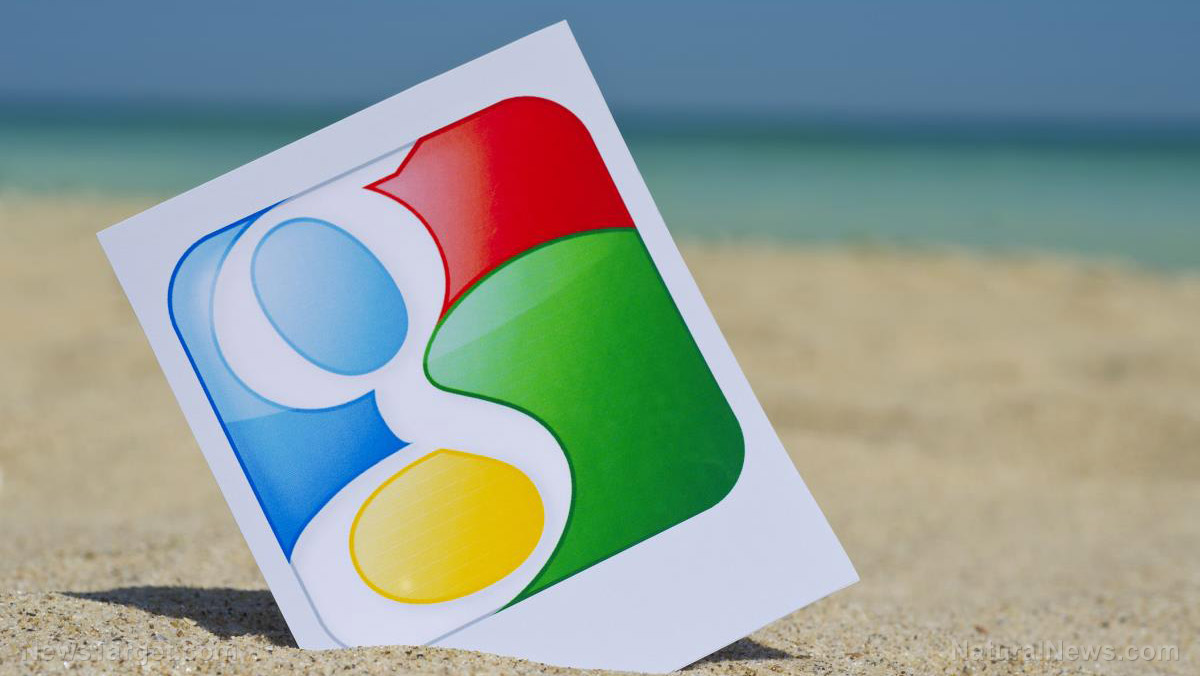RIGGED: Google devotes 41% of top page of search results to its own products, study finds
08/01/2020 / By Isabelle Z.

A report by The Markup based on an analysis of 15,000 popular Google searches discovered that the search engine giant allotted a remarkable 41 percent of the vital first page of search results to a mix of its own sites and “Direct Answers” that are hosted by Google.
Google’s Direct Answers are snippets that are populated with information that it scrapes from other sources, which means users do not need to leave Google’s page to get the answers to their questions. This info is often scraped without the source’s consent or knowledge and costs the source valuable traffic.
In addition, when looking at the top 15 percent of the first page of search results alone, which represents what would fill the first screen seen on an iPhone X, the figure climbed from 41 to 63 percent. In 20 percent of the searches, not a single link to an external website appeared on the first screen.
In their report about the rigged searching system, The Markup gave the example of a search for “myocardial infarction.” When this term was entered into the search engine, Google provided results that included Google’s dictionary definition of the phrase, a box called “People also ask” that can be expanded to see the answers to related questions while remaining on the search results page, an abridged encyclopedia entry with different links known as a Knowledge Panel, and a carousel called Related Conditions that leads to Google searches for different diseases.
All of these results were displayed ahead of search results from more reputable sources of medical information like Harvard University, Medscape and WebMD. The Markup added that users need to scroll nearly halfway down the page in order to even view the first organic result for the search.
This is a huge contrast to the early years of the search engine, when people would type in their terms and get a page with 10 blue links that would lead them to different websites.
Google’s tactics are making them a lot of enemies
The news comes as top executives from Big Tech companies such as Google, Facebook, Amazon and Apple are appearing before Congress to talk about the dominance of their platforms within the tech industry. Fifty U.S. attorneys general are investigating Google’s ads and search businesses for anti-trust violations, while the Department of Justice is expected to file an anti-trust lawsuit against the search giant soon.
One example of the effects of Google placing its own products on the search page can be seen in the case of Google Flights and Google Hotels. In the nine years since the launch of these features, they have become market leaders, attracting nearly twice as many American site visits last year as their biggest competitors, Booking.com and Expedia.com. This is despite the fact that Google Flights does not always display all of the options that are available to people.
In an anti-trust investigation by the European Commission, internal emails between Google staffers were uncovered that discussed the need for them to position their own comparison-shopping product at the beginning of the search results in order to get more traffic. This move saw the traffic to their product more than double from 4 to 10 million visits. One expert likened this to going to the library and having the card catalog show you which book you should get according to which would be the most profitable for the library.
The placement of Google products ahead of competitors as well as the answers it displays on it search page have led to lawsuits as well as regulatory fines. Several sites have stated that the move killed their revenue and hurt their company significantly. The Markup reports that it heard from the founders of established companies and innovative startups who said they simply couldn’t compete when Google started placing its own products first.
Of course, none of this is surprising coming from Google, who regularly buries sites they don’t agree with at the bottom of their rankings. This is just another way they rig the system in their favor. Unfortunately, with nine out of every 10 U.S. web searches taking place on Google, there’s huge potential to control what people are seeing.
Sources for this article include:
Tagged Under: Google, Google products, search engine, search results, SERPs
RECENT NEWS & ARTICLES
COPYRIGHT © 2017 BigTech.news
All content posted on this site is protected under Free Speech. BigTech.news is not responsible for content written by contributing authors. The information on this site is provided for educational and entertainment purposes only. It is not intended as a substitute for professional advice of any kind. BigTech.news assumes no responsibility for the use or misuse of this material. All trademarks, registered trademarks and service marks mentioned on this site are the property of their respective owners.




















